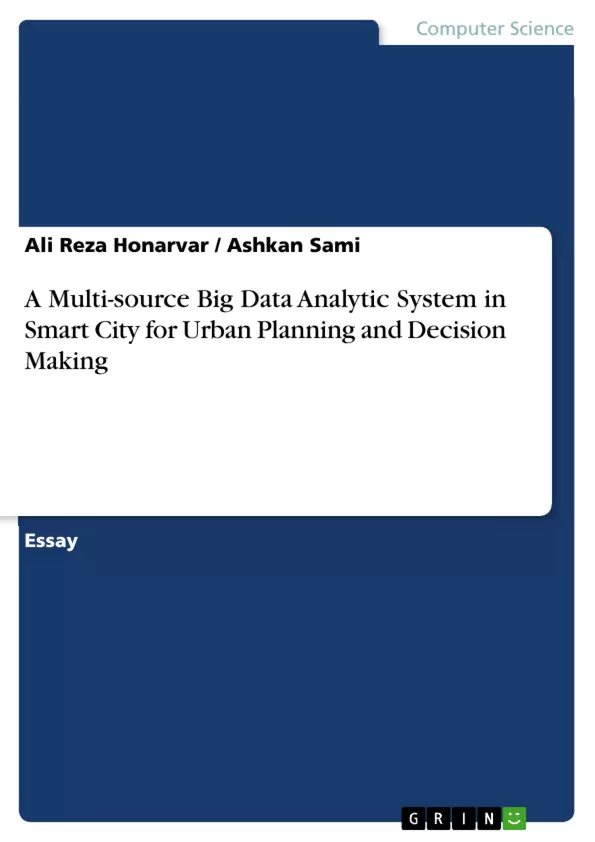Various sensors are embedded in different places of smart cities to monitor and collect data about the status of cities. The goal of a smart city is to improve the quality of life by improving the efficiency of services and providing residents needs using different technologies and mining captured data in cities. Mining such data to extract valuable knowledge involve a large number of challenges because various sources of data in smart cities usually are big, independent, heterogeneous and no semantic is integrated and annotated to them.
In this PhD research these concerns will be tackled by developing and proposing a novel system and approach by leveraging linked open data and semantic web technologies, data mining mechanisms and big data processing platforms
Frequently asked questions
What is the title of this document?
The title is "A Multi-Source Big Data Analytic System in Smart City for Urban Planning and Decision Making."
Who are the authors of this document?
The authors are listed as 85 %1F- ;:->B-> and -:0 ?47-: &-95. Additional author information including department and university affiliations, and email address (^DOLUH]DKRQDUYDU VDPL`#VKLUD]XDFLU) are provided for one author.
What is the primary focus of this document?
The document focuses on designing and implementing a multi-source Big Data analytic system for smart cities, specifically related to urban planning and decision-making.
What are some of the key themes covered in this document?
Key themes include challenges of urban planning, the role of multi-source data, smart city applications, data analysis, and the use of big data technologies for improving urban environments and decision processes.
What are the objectives of the study described in this document?
The objectives include identifying important parameters to develop smart cities and design new solutions regarding smart governance aspects. It aims to collect data that is collated and exchanged to improve quality of life.
What is the problem statement addressed in this document?
The problem is centered around the need for advanced analytics to handle diverse data sets which must be integrated into smart cities.
What types of data are analyzed in this project?
The types of data analyzed in the project include parameters that aid in the implementation of smart cities and governance, as well as data on the relationship between citizens and governance.
What does this document contribute to urban planning and decision-making?
The document contributes by creating insights related to the process of the urban environment, and developing analysis regarding the decision-making process in the urban environment.
How can the performance and benefits of the proposed methods be demonstrated?
Performance is demonstrated through analysis of urban data, the performance of the data analysis methods, and the relationship between collected data and the quality of citizen life.
What types of data collection methods are addressed?
This document addresses the nature of big data for both structured and unstructured methods.
What aspects of smart cities does the document intend to demonstrate?
The aspects of smart cities that the document will demonstrate are based on the specific implementation, where collected parameters can be compared to standard parameters from data collected.
Does this paper acknowledge any previously published work?
This paper has been published at https://www.researchgate.net/publication/304019828
- Quote paper
- Ali Reza Honarvar (Author), Ashkan Sami (Author), 2016, A Multi-source Big Data Analytic System in Smart City for Urban Planning and Decision Making, Munich, GRIN Verlag, https://www.grin.com/document/338435



